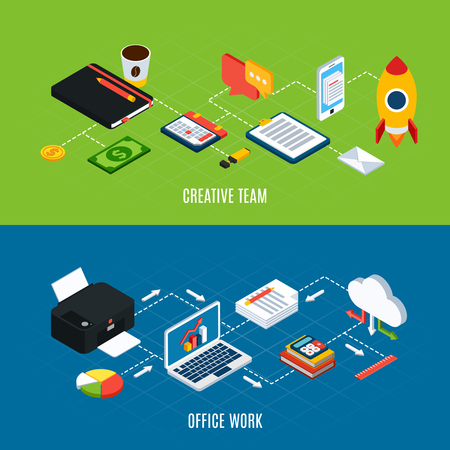Understanding Informational Interviews
If you’re looking to explore new career paths or industries in the U.S., informational interviews can be your secret weapon. But before you start reaching out to professionals, it’s crucial to understand what an informational interview truly is—and what it isn’t. An informational interview isn’t a job interview; there’s no pressure to land a position or impress a hiring manager. Instead, it’s a relaxed yet purposeful conversation where you get to ask questions and learn from someone’s real-world experience. Think of it as a chance to grab coffee with someone whose career inspires you, and gain insider knowledge that can’t be found on company websites or LinkedIn profiles. In American work culture, informational interviews are widely accepted and even encouraged as a way for job seekers and career explorers to build networks, clarify their goals, and uncover opportunities they might never have considered. By leveraging these conversations, you’ll develop not just a clearer picture of your options, but also the confidence and connections needed to move forward on your own unique path.
2. Identifying the Right People to Connect With
When it comes to making the most out of informational interviews, choosing who you reach out to can make all the difference. The key is to identify professionals who not only have experience in your field of interest but are also willing to share genuine insights about their journey. Start by tapping into alumni networks from your college or university—many graduates are eager to give back and guide others from their alma mater. Don’t overlook LinkedIn; it’s a goldmine for discovering connections through shared interests, mutual contacts, or even groups centered around specific industries.
Where to Find Valuable Contacts
| Resource | How to Use |
|---|---|
| Alumni Networks | Search alumni directories or platforms like LinkedIn’s alumni tool for professionals working in your target field. |
| LinkedIn Connections | Use filters to find people in roles or companies you admire; personalize connection requests referencing shared backgrounds. |
| Professional Associations | Join industry-specific groups and attend events to meet potential mentors or peers. |
| Industry Events & Meetups | Participate in webinars, conferences, or local gatherings where professionals often share their experiences. |
Cultivating a Mindset of Curiosity
This process isn’t just about collecting contacts—it’s about cultivating curiosity and approaching each interaction with an open mind. Remember, the best insights often come from unexpected places. Don’t be afraid to connect with people whose paths look different from what you originally envisioned. Sometimes, those conversations can spark new interests or reveal career possibilities you hadn’t considered.
TIPS FOR OUTREACH
- Be authentic in your message—mention what specifically intrigues you about their background.
- Keep your ask simple: request 15-20 minutes for a casual conversation rather than a formal interview.
- Express gratitude for their time, regardless of whether they respond—professional goodwill goes a long way.
By strategically identifying and reaching out to the right people, you lay the foundation for meaningful informational interviews that can genuinely shape your career exploration journey.

3. Reaching Out the American Way
If you want to truly leverage informational interviews for career exploration in the U.S., it’s essential to know how to reach out effectively—American style. Crafting a message that feels authentic, respectful, and concise is key to getting positive responses. Start with a warm greeting, introduce yourself briefly, and explain what genuinely interests you about their career or company. Americans value sincerity and directness, so be clear about your intentions: let them know you’re seeking advice or insight, not a job offer. Always personalize your message; mention something specific you admire about their work or achievements. Respect their time by proposing a short call (15–20 minutes) and showing flexibility in scheduling. Remember, U.S. etiquette emphasizes gratitude and professionalism, so close your message with a heartfelt thank you and a polite sign-off. By reaching out this way, you demonstrate initiative, respect, and cultural awareness—qualities that can set you apart and open doors for meaningful conversations that shape your career journey.
4. Making the Most of the Conversation
When it comes to informational interviews, showing up is just the beginning—the real magic happens in how you engage. To truly leverage these conversations for your career exploration, preparation, presence, and follow-up are key. Here’s how you can make every moment count and leave a lasting positive impression.
Prepare Thoughtful Questions
Walking into an informational interview with generic questions won’t get you far. Instead, do your homework on both the person and their field. Prepare a mix of open-ended and specific questions that show genuine curiosity and respect for their expertise. Not sure where to start? Here are some sample questions to inspire you:
| Type of Question | Example |
|---|---|
| Background & Path | What inspired you to choose this career path? |
| Daily Work Life | What does a typical day look like in your role? |
| Industry Trends | What changes have you seen in your industry lately? |
| Advice & Growth | If you were starting out today, what would you focus on? |
Practice Active Listening
This isn’t just about hearing words—it’s about being fully present, asking thoughtful follow-ups, and responding with authentic interest. Nodding along or paraphrasing what they’ve shared shows respect and helps build rapport. Remember, people love talking about their journeys when they feel genuinely heard.
Leave a Positive Impression
Your attitude matters as much as your questions. Express gratitude for their time, remain open-minded (even if the conversation goes off-script), and avoid coming across as transactional or self-serving. If possible, share what resonated with you—this personal touch can make you memorable in the best way.
Master Tips for a Standout Conversation
- Be punctual: Respect their time by arriving or logging in early.
- Stay present: Avoid distractions—give them your full attention.
- Follow up: Send a thank-you note highlighting something specific from your chat.
- Stay curious: Let the conversation flow naturally; sometimes the best insights come from unexpected turns.
- Avoid “ask culture” missteps: Don’t immediately ask for jobs or referrals; focus on learning first.
Cultivate Genuine Curiosity and Openness
The heart of a great informational interview is sincere curiosity. Approach each conversation as an opportunity to learn—not just network—and allow yourself to be surprised by what you discover. In doing so, youll build authentic connections that can open doors long after the call ends.
5. Following Up and Building Lasting Connections
One of the most overlooked yet powerful aspects of informational interviews is what you do after the conversation ends. Sending a meaningful thank-you note isn’t just polite—it’s your first step in transforming a one-time chat into a long-term relationship. Make it personal by mentioning something specific you learned or found inspiring. For example, “Thank you for sharing how you navigated your transition from marketing to product management; your story really encouraged me to think more creatively about my own path.” This shows genuine appreciation and makes you memorable.
But don’t stop there! Keep the relationship alive by staying engaged. If your contact mentioned a project or company initiative, follow up weeks later with an article or resource that relates to their interests. Or let them know how their advice has helped you take action—people love seeing their impact. Remember, networking in American culture is often about authentic give-and-take rather than transactional exchanges.
As you nurture these connections, be open to the possibility that they can evolve into ongoing mentorships or even future job opportunities. Check in periodically, celebrate their achievements on LinkedIn, and offer support when possible. With consistency and authenticity, today’s informational interview can become tomorrow’s career breakthrough.
6. Transforming Insights into Action
Gaining new knowledge from informational interviews is only the beginning—what truly matters is how you turn those insights into meaningful action. Take a moment to reflect on what you’ve learned about different roles, industries, and career journeys. Did someone’s path spark your interest or challenge your assumptions? Use these moments as fuel for growth. Start by jotting down the most valuable takeaways and consider how they align with your strengths, values, and aspirations.
Identify Concrete Next Steps
Now, transform those reflections into an actionable plan. Maybe you discovered a new skill employers are looking for, or perhaps you learned about a company culture that excites you. Set clear goals: enroll in a relevant course, update your resume with fresh insights, or schedule coffee chats with new connections. Taking small but consistent steps will move you closer to your dream role—and show you’re serious about your career exploration.
Invest in Personal Growth
Informational interviews aren’t just about collecting facts—they’re opportunities for self-discovery and mindset shifts. Let each conversation inspire you to grow beyond your comfort zone. Whether it’s improving your networking skills or building industry-specific knowledge, every action you take boosts your confidence and positions you for long-term success.
Build Renewed Career Confidence
Most importantly, trust yourself and celebrate progress along the way. Each insight gained and connection made builds momentum. Remember: career exploration isn’t a straight line—it’s a journey of learning and evolving. By leveraging what you’ve learned through informational interviews, you’ll approach each next step with greater clarity, purpose, and belief in your ability to create the future you want.

